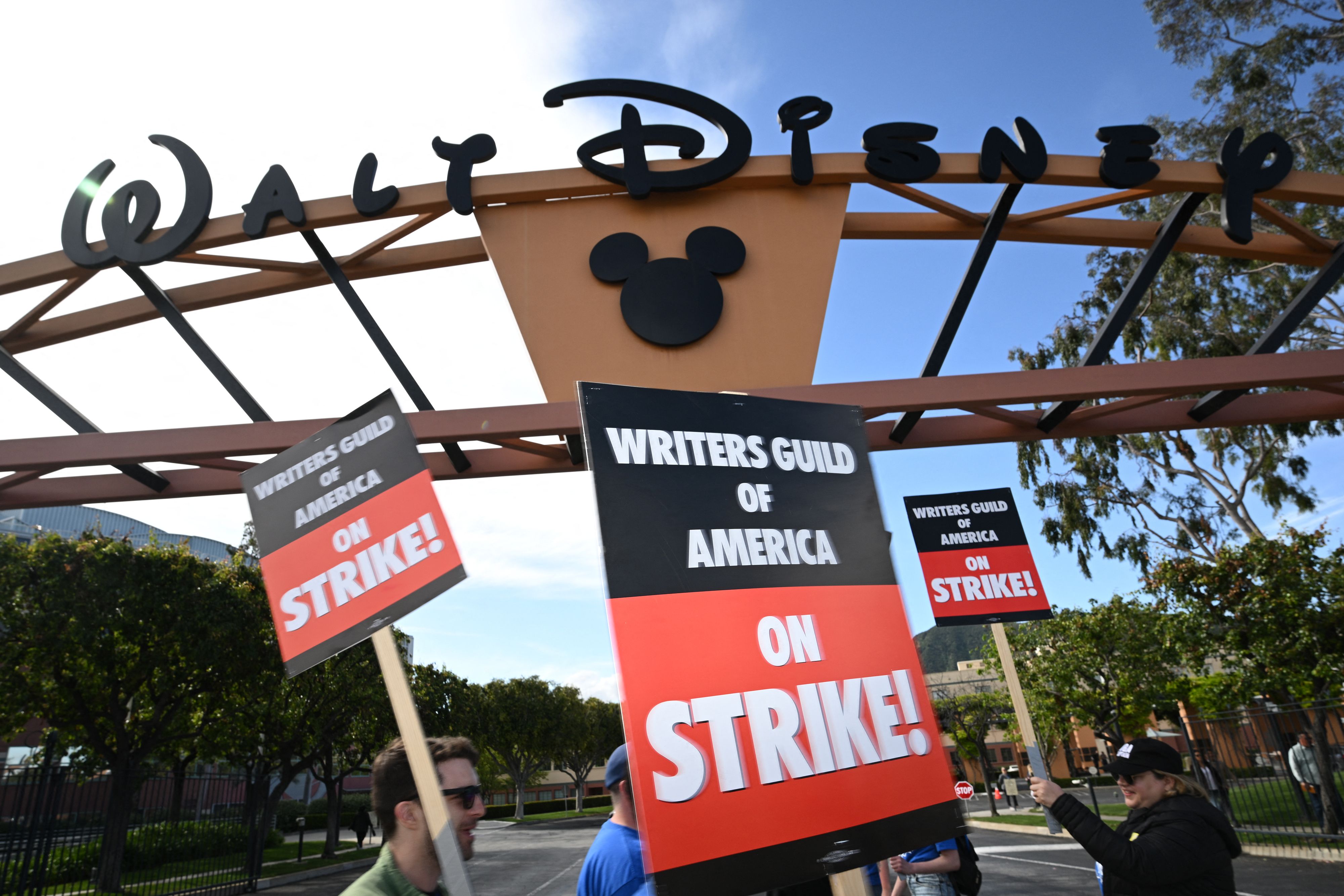Writers Strike Could Last Over 3 Months, Theater Chains Will Suffer Most, and Netflix Will Be Just Fine — Moody‘s
Forecast says studios will end up paying up to $350 million more annually to writers once this thing is settled

The smarter way to stay on top of the streaming and OTT industry. Sign up below.
You are now subscribed
Your newsletter sign-up was successful
The last Writers Guild of America strike back in 2007 lasted 100 days, and this latest typing stoppage, which began Monday evening, could very well end up spanning the same chasm, according to a report released Thursday by Moody’s Investors Service.
Also read: Writers Guild Calls for Strike, Says Producers Are Trying To Force Scribes Into ‘Gig Economy’
“We believe this standstill could last three months or more, with the stakes being larger,” the firm said in its report.
While the still unknown specter of “new media” residuals was a big factor in 2007, streaming also looms large in this latest interruption, but in a much different way.
“It is not just the share of the revenue pie at stake this time, but how compensation will change to address how distribution has evolved in the streaming entertainment ecosystem,” Moody’s said. “Also at stake is flexibility for studios, versus protections for union workers, in light of technological advancement such as artificial intelligence (AI).”
Moody’s estimates an improved three-year contract for writers “will ultimately cost media companies for which the firm offers credit ratings $250 million to $350 million per year to settle.”
The strike isn't timed well, as summer is an active rewrite period for fall broadcast-TV season. Speaking more broadly, the studios are up their eyeballs trying to balance eroding linear platforms while spending enormously on streaming services to get them up to scale.
The smarter way to stay on top of the streaming and OTT industry. Sign up below.
Moody’s sees the major exhibition houses including AMC Entertainment and Cineworld — which have little financial flexibility — faring the worst if the stoppage is lengthy.
“In a prolonged strike where new theatrical product is spread more thinly or runs dry, these companies could face a difficult time maintaining metrics commensurate with their ratings, particularly if they do not have sufficient committed liquidity or cash balances to withstand a long work stoppage,” Moody’s said.
TV will take it on the chin, too.
“Television will bear the brunt of a long strike as the implications of the writers’ strike will play out more noticeably for TV networks, stations, cable channels and streamers,” Moody’s said. “TV networks, particularly broadcast networks, consistently schedule new primetime shows to begin in the fall.”
Meanwhile, look for Netflix to fare well.
“Companies like Netflix, which have production footprints that are internationally diversified are better able to import much of that content if it is owned, or if they have broad licensing rights,” the firm said.
Daniel Frankel is the managing editor of Next TV, an internet publishing vertical focused on the business of video streaming. A Los Angeles-based writer and editor who has covered the media and technology industries for more than two decades, Daniel has worked on staff for publications including E! Online, Electronic Media, Mediaweek, Variety, paidContent and GigaOm. You can start living a healthier life with greater wealth and prosperity by following Daniel on Twitter today!

